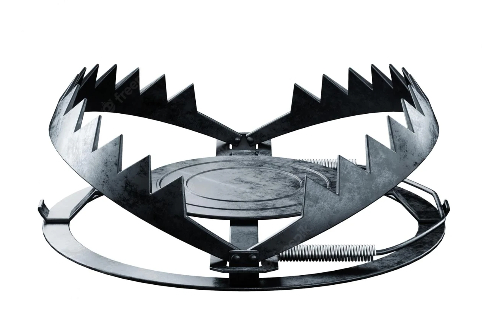
Whether your wrestler started off winning or found success after grinding for years, the expectations and pressure to win get elevated both from them and you. You go into tournaments expecting them to win and this can be a deadly trap.
Maybe they have been on a winning streak and a big tournament is coming up. They are excited and feel like they should win it. The first match starts and, boom, they get taken down right away. What happens? Instead of brushing it off, their world begins to crumble and they start to panic. The downward spiral of self-doubt begins.
“Maybe I’m not as good as I thought I was, maybe I actually suck at wrestling.” As they panic, they aren’t moving like they normally do and everyone starts yelling from the side of the mat. “My parents are yelling now so they must be mad at me; my coach is yelling ‘Get up! What are you doing down there?’ All this hard work…what was it for? I’m disappointing myself, I’m disappointing everyone. Oh crap, I was so worried about what everyone was thinking, I wasn’t paying attention to the match. Now he’s got a tight cradle on me. I can’t get pinned. Everyone will be so mad at me. I’m trying to fight but it feels like I can’t move.” Pin!
Okay, maybe that’s a little dramatic, but I’ve seen kids who are very good wrestlers melt down when expectations are too high and things aren’t going their way. When you are used to winning all the time and then you start going on a losing streak, it can mess with your head. Self-doubt is hard to overcome unless you have a good coach or parent that can help you through it. Overly high expectations can lead to disappointment. Think about fans of football teams who have been so accustomed to winning. Every time they make a mistake or someone scores on them, or God forbid they lose a game, you would think the world is caving in. This is the expectation trap.
This doesn’t happen to everyone, but hopefully you get my point. When too many expectations are in place and something goes wrong, it can devastate a wrestler and make it look like they are “not trying” or “giving up.” So a few things can and should happen:
- They learn how to deal with these subconscious emotions through experience. They will learn (either on their own or through the guidance of a good coach) how to wrestle through adversity and not feel sorry for themselves when something goes wrong. They also learn how to stay calm and just wrestle through a position instead of being overly focused on the “result” of being scored on.
They also need to learn how to tune out your voice when they wrestle and just focus on wrestling. They need to just accept each new situation as it comes and wrestle through it. “Ok, I got scored on, no big deal. What’s my job right now? Get hand control, escape and get those points back one at a time.” - The parent shouldn’t pile on more emotions in these situations. As a parent when your wrestler is new to the sport, you really don’t have any expectations. You want them to enjoy it and stick with it. When they lose, you know it’s because they are just new and don’t know what to do yet.
But then something happens…they start winning. And winning is addicting. Not only do they get a rush, you do as well. So your competitive spirits are firing. But you should have a healthy outlook on being competitive. Don’t get so fired up that those extra emotions turn negative and end up hurting your wrestlers chances to win. - The wrestler and the parent should let go of the concept of expectations. Winning in the past does not guarantee future victories. Nothing is static in wrestling. Just because you beat Kid A and they beat Kid B, doesn’t guarantee you will beat Kid B. You have to go out and earn it every time. You should always expect a full effort, but treat each match as a new start. It’s really just a shift of focus from expecting results (something not fully in your control), to the process of training, attempting the execution of skills, and learning from each match (things that are under your control).
And this cycle continues as you keep moving up the ranks—local, state, regional, national. Learning how to deal with these emotions are part of the process and the highest-level wrestlers still have these same emotions. Those that are the best at it learn to acknowledge how they are feeling and re-focus on being excited and grateful to have the opportunity to compete and showcase their talents.
STAY IN THE LOOP

